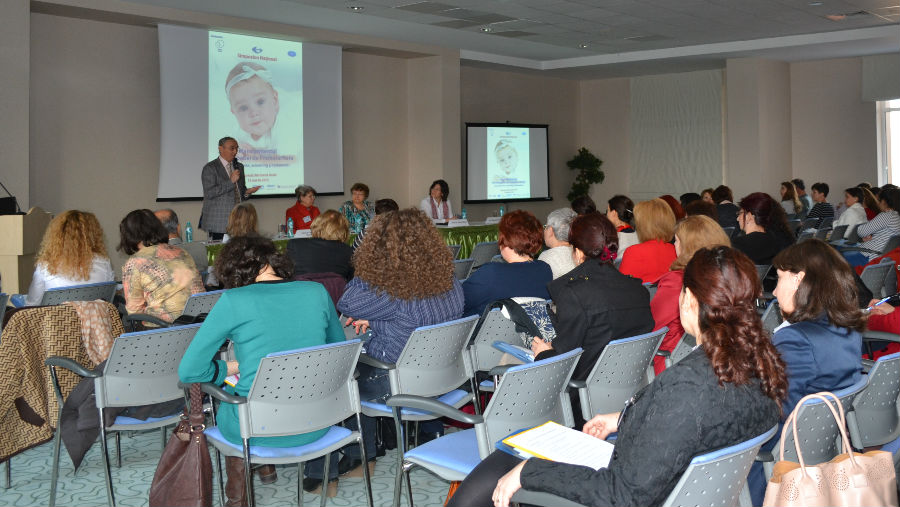Join a powerful, unprecedented alliance for better eye health for all.
Join IAPB-
Choose an alternate language here

The IAPB VISION 2020 workshops programme’s purpose is to support the delivery of the WHO Global Action Plan (GAP): Universal Eye Health. Achieving these goals requires long-term commitment, strong partnerships and prolonged advocacy efforts.
Some of our 2017 highlights include – IAPB Africa team holding a series of meetings (in May) including a day spent reviewing the Advocacy strategy for Africa. Through the workshop programme there have been three rounds of advocacy advisor training for 14 national advocacy advisors. To date excellent progress has been made with nine national countries having developed Human Resources for Health plans, which include eye health cadres and four countries actively implementing these plans.
In Romania, we support a national Retinopathy of Prematurity (ROP) programme. This year we have supported the establishment of a national ROP Committee, chaired by the Ministry of Health (MoH) to lead the programme and we have worked with the lead neonatologists in Iasi region to deliver the first regional ROP workshop.
Another exciting development this year coming out of Europe was from Moldova – where the National Eye Health Planning is underway. The credit for this goes to our partners who have been relentlessly advocating for this since attending the European GAP workshop in Vienna in 2015.
In the South-east Asia region, which is one of our most active regions, we will be leading the team conducting provincial level RAABs in Myanmar. We are also working with Bhutan MoH to secure funding for a repeat national RAAB. Two national planning workshops were facilitated for the Ministries of Health, one in Indonesia and one in Bangladesh.
In Latin America, IAPB is collaborating with PAHO to start developing a strategy to tackle the problem of poor service provision in Central and South America. For this, a joint workshop was held at the beginning of this month (August 8) in Lima, Peru for 32 heads of Residency programmes from 13 countries in the region. This is a first step towards changing recruitment policies so that more from ethnic minorities and remote communities have the opportunity to train and secondly to look at how to take public health a focus in the curriculum.
In the Western-Pacific region we supported the Pacific Eye Care Society (PACeyes) consortium to hold a regional eye health conference for the Pacific Islands. This event promoted activities that provide for mutual assistance, exchange of information, continuing professional development and education, peer review and research in ophthalmology. In an area covering vast distances this offers a rare opportunity for eye care professionals to meet face to face.
Looking back
Looking back the workshop programme of the previous year, where we held 17 workshops and were able to achieve some great progress specifically:
Looking forward
Plans for the next five months include:
The workshop programme is ever evolving and has the advantage of a guiding strategic framework of the GAP whilst also being locally flexible to meet national MoH needs. They often provide a rare opportunity for MoH eye health coordinators to meet and develop cross boundary initiatives as well as providing a fertile environment for new ideas and approaches.